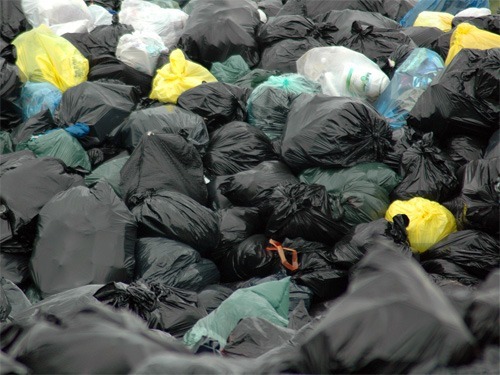Last week David Suzuki, Canada’s premiere environmental activist, was showered with praise during a ceremony in Vancouver. Yet even on that happy occasion his mood was bleak. According to a report by the Canadian Press news service:
as he received a lifetime achievement award.the 74-year-old said the planet is in “far worse shape” today than when he began spreading his message almost 50 years ago. “We’ve gone backwards,” he said in an interview.
Lately, Suzuki has begun referring to himself as “an elder.” Unfortunately, age does not always bring wisdom. The idea that the planet is deteriorating is fashionable. People like Suzuki have, after all, been saying so forever. But what evidence supports this claim?
Other people – smart, well-informed, persuasive individuals armed with plenty of facts and figures – insist the opposite is true. They say environmental health has been steadily improving. In 1995 Gregg Easterbrook published A Moment on The Earth. The preface to that book begins with these paragraphs, which take us back 18 years:
In the Autumn of 1992 I was struck by this headline in the New York Times: “Air Found Cleaner in U.S. Cities.” The accompanying story said that in the past five years air quality had improved sufficiently that nearly half the cities once violating federal smog standards no longer did so.
I was struck by how the Times treated this article – as a small box buried on page A24. I checked the nation’s other important news organizations and learned that none had given the finding prominence. Surely any news that air quality was in decline would have received front-page attention.
American air is getting cleaner. Can this be happening on the same planet from which most current environmental commentary emanates? Vice President Al Gore has described the U.S. environmental situation as “extremely grave – the worst crisis our country has ever faced.”
Easterbrook’s argument is thorough, detailed, and convincing. Including footnotes and index, his book is 745 dense pages long. Anyone who takes the time to read it is unlikely to ever again believe that the planet is fragile or that the environment is under increasing threat.
That same year, The True State of the Planet – a collection of essays edited by Ronald Bailey – also appeared. The prologue to that volume points out that, since the first Earth Day in 1970, “thousands of pages of environmental regulations” have been adopted by governments and billions are now spent annually combating pollution. The result, according to Bailey?
in the Western developed world, air and water are much cleaner, automobiles are far cleaner to operate; belching smokestacks are far fewer.
Which raises an interesting point, doesn’t it? Fifty years ago the US the Environmental Protection Agency (and its sister organizations in other countries) didn’t yet exist. Environment ministries at multiple levels of government were mere shadows of their current selves. If, despite all of that attention and effort, despite all of those billions spent, matters really have gone backwards then the environmentalists who demanded these measures have some explaining to do.
For people who missed the Easterbrook and Bailey books, three years later, in 1998, Bjorn Lomborg published The Skeptical Environmentalist. Flip open the front cover and the first thing you read is this:
The Skeptical Environmentalist challenges widely held beliefs that the environmental situation is getting worse and worse.
Alas, Suzuki remained unconvinced. In 1998 he himself published a collection of essays titled Earth Time. The back cover tells us that this book:
takes stock of the problems that confront us as we enter the new millennium. [Suzuki] looks unflinchingly at the forces that have driven us to the edge: globalization, political shortsightedness, greed, and willful blindness.Earth Time asks the right questions – at the right time – with answers that point to a slower way of life, one that keeps us in tune with the Earth and its riches.
Anyone who thinks that a slower way of life in tune with the Earth is going to magically cure humanity of shortsightedness, greed, and willful blindness is welcome to their delusions. But let’s not beat around the bush. Such people aren’t focused on the most direct path to environmental improvement. Rather, they think it’s their business to redesign humanity. They think that because a slower way of life appeals to them personally, everyone else should adopt it.
In other words, they have a grand master plan. They’re selling a political philosophy. From this perspective, all their talk about the environment starts to look like the equivalent of the free vacation you’ve supposedly won – except that it’s really intended to sell you a timeshare.
Even though David Suzuki thinks we’re headed straight for ecological collapse, exhaustively researched books that take the opposite view keep on coming. 2007 heralded the arrival of Indur Goklany’s The Improving State of the World: Why We’re Living Longer, Healthier, More Comfortable Lives On a Cleaner Planet. Note those final two words. Goklany, an economist, fills his book with little known facts such as: during the 1990s, the percentage of days with unhealthy air quality in the US was cut by two-thirds (from 3% to 1%, see page 217).
In a similar vein, last year saw the arrival of Matt Ridley’s The Rational Optimist. It, too, argues that matters are steadily improving for both humans and the environment. Suzuki may worship at the alter of self-sufficiency, as illustrated by this quote plucked from a Winnipeg Free Press article published last September:
Local communities are going to have to be much more self-sufficient. We’ve got to grow much more of our own food where we live. We can’t go on importing food at such a great cost.
Ridley, on the other hand, includes a sub-heading in Chapter 1 of his book that reads:
Self-sufficiency is poverty (p. 41)
According to the celebrated Suzuki, our planet is at risk of “ecological holocaust.” So why can’t Easterbrook, Bailey, Lomborg, Goklany, or Ridley find evidence of this?






